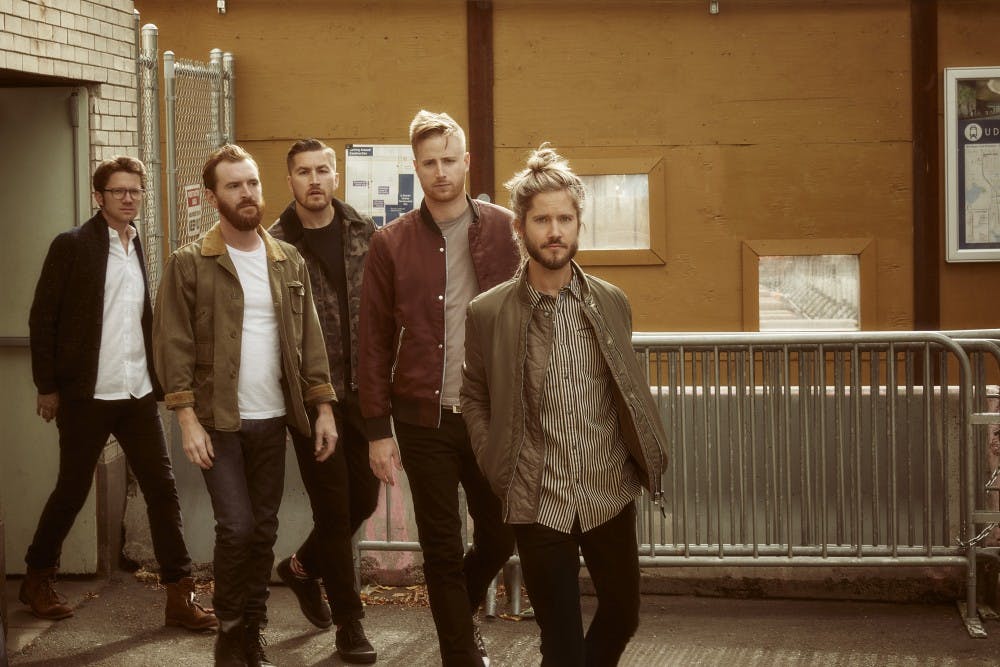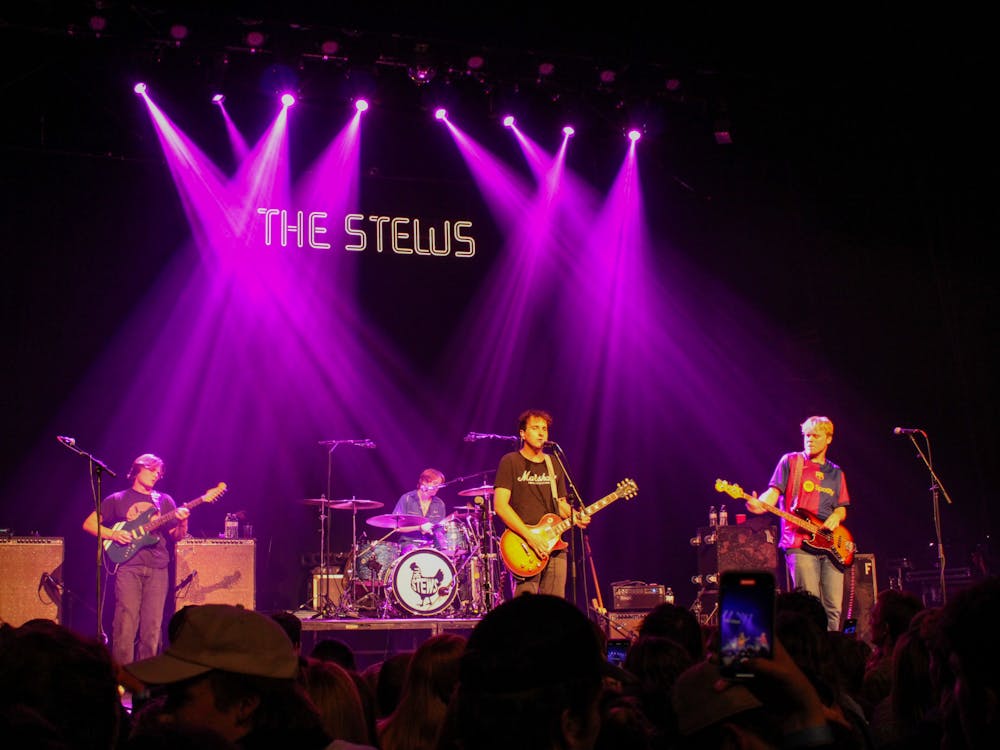Moon Taxi’s music may not drive you to the moon but it’ll certainly make you dance your way there. The high-energy group is back in Virginia a month after their robust Lockn’ Festival set rocked the lover’s state into a deep and groovy trance. The pop-rock Nashville quintet will take over the Sprint Pavilion Thursday night with a little help from their friends of Ripe and the University’s own Kendall Street Company.
Moon Taxi has been flying high over the past year. The group was signed to their first record deal with powerhouse label RCA, toured throughout the spring and summer and released their most successful album to date, “Let the Record Play.” Moon Taxi’s drummer, Tyler Ritter, spoke with Arts and Entertainment to discuss the roots and current situation of the band ahead of their highly anticipated Charlottesville show.
Arts & Entertainment: I read in some of your previous interviews where you talked about going to festivals as a fan, specifically Bonnaroo. Tell me about your experiences at festivals as a fan and if those experiences have contributed to the energy and success of Moon Taxi.
Tyler Ritter: Bonnaroo 2004 was my first festival, ever. I can just remember standing around the front of house area at the main stage watching the headliners play and saying to myself, "This is it, I have to play this stage." That whole weekend set the bar for how I personally viewed what a top notch performance was, and I think the rest of the guys in the band had the same epiphany at some point in their early festival going years. So yes — those experiences have definitely shaped us as a band.
AE: What is a more fun experience, going to a festival as a fan or as an artist? Can the two even be compared?
TR: Those are two very different animals. Don't get me wrong, performing at a music festival is absolutely a blast, but at the end of the day you have a job to do.
AE: Plenty of people who will be at your show at the Sprint Pavilion on Thursday were probably also at Lockn’ for your performance, including myself. Is there a difference in your approach to playing a festival as opposed to a normal show?
TR: Yes, and there are several factors to consider when going into either type of show, whether it be a festival or headlining tour gig. With festival slots, we try to factor in crowd demographics, the time of day — and even the weather! — and ultimately how long our set is. With our own shows, we typical play anywhere from 75 to 90 minutes, as opposed to only having 45 to 60 minutes at most festivals. All of those rather mundane things play a role in what cover we'll bust out or how many solos or improv sections we'll include on the setlist.
AE: Now that you guys have built up an extensive discography, you have plenty of songs to play at each show. What goes into creating a setlist for a show? What is the process like?
TR: A lot of the setlist process revolves around trial and error in finding the perfect show flow. Tommy [Putnam] has stepped into the driver's seat in creating the first draft of the setlist every day, and he does an excellent job of trying to make each night a little bit different from the previous. From there, he'll text the rest of us on our little band thread, and then if anyone has any suggestions, edits, grievances or praise they can chime in. It's just a throughout the day process.
AE: Do you guys tend stick to a template of songs that you usually play live or switch it up from show to show?
TR: Our production is constantly growing and getting more sophisticated, and to make that experience top-notch every night, it behooves us and our crew to keep the shows fairly consistent. We don't change up the sets drastically like we did years ago, but we'll play certain songs in specific cities and learn new covers the day of to surprise the crowd.
AE: To you guys, what do you think it is about your music and your live shows that not only keeps the fans coming out to shows and listening to your stuff, but also keeps you guys eager to keep doing what you’re doing?
TR: We love what we do, and I think the fans see it, appreciate it and throw that energy ball back at us.
AE: I know that you have only been with a record label for about a year now. How has being signed affected your creative control over your work? While you could say that “Let the Record Play” might be a little more pop-centralized, it doesn’t seem to me that the sound or style on “Let the Record Play” has changed too much from previous work.
TR: Signing to RCA hasn't affected our creative control at all. That was one of several perks that helped to push us in the direction of going with a major, and with them specifically. As far as us having a more pop oriented sound, we've been moving in that direction by our own volition since we released “Cabaret.” The ultimate goal is to grow musically and reach as many people as possible, and to do that, all five of us believe that expanding our musical vocabulary is the best possible way to do that.
AE: What are the differences between creating an album as an independent band versus a band on a label?
TR: In our experience, there aren't a whole lot of differences. I doubt many folks know this, but we recorded LTRP before we signed with RCA. We had the record ready to release on our own and then the labels came knocking.
AE: Personally, how have you guys changed as individuals as you have endured more and more success?
TR: I have always viewed our rise to success as this really long 45-degree angle. Think like a moderately steep hill that you can't see the top of. At times you feel like you're just stuck at the same level, but when you look behind you, all of a sudden it hits you that you've climbed a hell of a long way up. That process was more difficult for me to appreciate when I was in my mid-20s, but now I get it, and I think that's just a maturity thing. It's pretty amazing that the five of us get to make a career out of this crazy adventure, and due to our very "un-overnight" success, we all have a very deep appreciation for where we've come from and what we've accomplished. That being said, there are still lots of fart jokes and horsing around, which is good for everyone's sanity.





